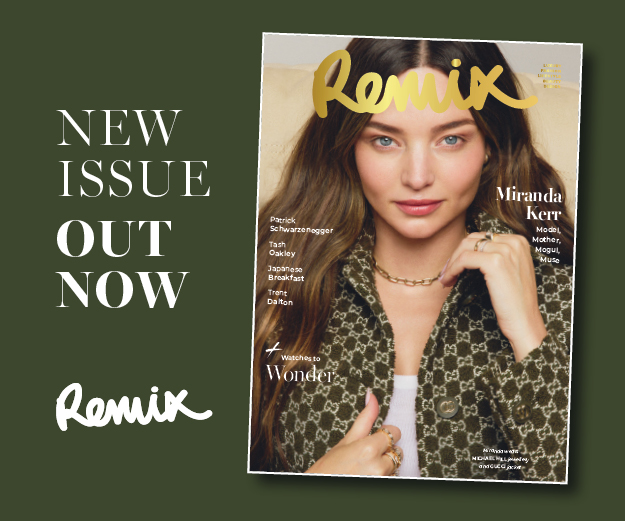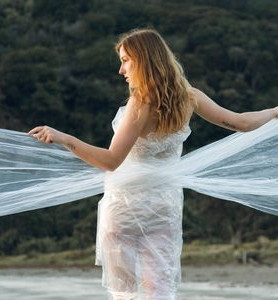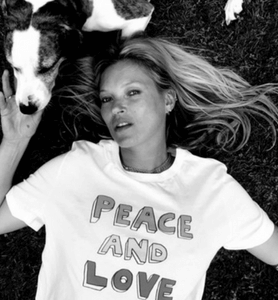Remix talks fashion and women's rights with Federico Pignatelli
Remix Editor Steven Fernandez sits down with Italian entrepreneur Prince Federico Pignatelli for an open conversation about the vulnerability of models in the fashion industry and how Pignatelli’s studio empire is going to change that.
Many people in New York and around the world probably don't realise you came from a very successful finance career before you started Pier 59 Studios.
I started as a finance journalist, writing and explaining complex markets in the simplest forms, so readers could understand it. From there an important financier read my article and liked my point of view; he called me up and offered me a job. I did extremely well in several years of investment banking in Europe and made a lot of money myself during that period as a trader. I retired young and went to Australia to love for four months. From there I went to California, to San Francisco and lived there for six months. After that I took my car and drove down to Los Angeles. I was 30. I then came back to the East Coast in the late ‘80s right before the stock market crash, worked in London for a few years then returned to New York to start my own investment bank, I did very well, raising about $400 million from institutional investors in Europe and investing into medical, entertainment, technology and communications. It was around this time in the mid ‘90s I was rediscovering my childhood passion for photography.
Then how did you come to set up the studio?
I came across the empty unused pier for sale, which I immediately recognised as one of the few horizontal properties in New York. I saw the huge potential for space. I was then approached by my friend Santo Versace, Gianni’s brother, and a few other partners. After 9/11 everyone wanted to sell and get out of the United States, so I bought the other 49% back and became the 100% owner. Since 2002, I have run the company alone and with other connected businesses, including Industry, which represents talent, photographers, makeup artists, hairstylists and now Industry models. We now have offices in LA; we are going to open in Miami, Chicago and Seoul in South Korea.
Since then Pier 59 has become one of the most famous studios in the world. It seems like every major magazine and celebrity and brand has shot at Pier 59.
I think that’s because we have always been involved in emerging technologies, from augmented technology to virtual reality. Video is the future. Going forward the successful creatives will be the videographers that know how to give a strong message and keep the viewer interested for the 30 seconds, 45 seconds, 60 seconds of a video. Photographers have been until now very good at creating emotions in one picture and that will continue, but photographers will have to evolve to keep that level of emotion to sustain the interest of the viewer. Then augmented reality and virtual reality will further radically transform advertising, so here at Pier 59 Studios we have several labs researching all of these technologies and their applications in advertising. We always want to be a step ahead, to guide our clients in adopting what can function and work for them.
Then of course more recently you established your own model agency, Industry. Tell me about some of the ways Industry is making a stand to support models’ careers?
Industry is an innovative agency because we care about the model’ professional wellbeing; we prepare them for the world out there. Many agencies will just sign the girls and send them out and see what happens. At Industry, we train the girls before we send them out there in front of clients in the marketplace. Another way we are making a stand is with payment. Models have long had difficulty getting paid, so we are changing the game by ensuring payment within 90 days of a job. It will force other agencies to step up and do the same. The model has to perform and the agency has to perform as part of the contract. We might upset some brands or magazines or photographers who don’t like our terms, but in the end, it’s the right thing to do for the models, who work just as hard as all the other people on a shoot.
How do you think taking a stand contributes positively to women’s rights?
So much has been said recently about the sexual abuse of models and what they’ve had to endure in this business and in Hollywood. But very little has been said about the financial stress that the models suffer by not being paid. When you don’t have the money in your pocket, you’re vulnerable. That vulnerability is what i want to take away. It’s expensive to live in New york and live in Los Angeles. If you don’t have that sense of independence you don’t have strength. That vulnerability is what can contribute to these issues. If a girl is not vulnerable financially, she is more empowered to refuse work or advances. Our models are trained in saying ‘no’ and calling us; if they don’t feel comfortable in a photoshoot, they call us and walk out. If they don’t feel comfortable doing certain things a client or photographer wants them to do, they shouldn’t feel like they have to.
Can you imagine being a young man or woman, having done very little modelling and not being prepared or trained by Industry? If a model needs to eat or pay rent he or she is more likely to say ‘yes’ to being naked to get paid by the job.
There are models that will be very comfortable being naked. Nothing is wrong with nudity. If you go to the Metropolitan Museum of Art, you will see naked statues, bodies and paintings. I’m all about nudity when nudity is an art form. A lot of photographers instead have a different perception of nudity and they make it vulgar. That is also how we educate the models; to differentiate between what is art and what is vulgarity. It comes down to education and the model feeling like they can make an informed call on the context.
What other stands do you take as a studio? Are you able to influence change against brands you know aren’t operating fairly?
Pier 59 is the most influential studio complex in the world and we host the biggest campaigns here. The models come here to make money. If I receive complaints or know of agencies that aren’t paying their models, then I will ban those agencies from the studio. If an agency or person is not conducting business fairly then I don’t want them here. I did that in the past and I was legally challenged because the company said I couldn’t prohibit them from working at Pier 59 Studios. They were trying to assert I was obliged to serve everyone, but it’s a private company, it’s my company and I have the right to make that decision. I want to see contracts that are fair to the models. Most agencies have clauses that are completely unfair: Like if the agency is in breach of the contract and the model wants to uphold their rights, then the model has to cover not only their legal expenses but also the agency’s as well. So basically, they entrench
themselves and protect themselves in a way that no model can challenge. That is unfair because if you are in breach of contract and aren’t providing your services, the model should be able to sue or leave. The whole business needs to be regulated, revamped and looked at.
Currently everyone can do whatever they want and it’s an invitation to abuse the system.
There are several very successful agencies that continue to take advantage of models and their hard earned money. It’s very easy to do that without regulation. Because we have a big presence in the business, we are going to be the first ones to change that and help develop those regulations. There are a number of agencies that make business complicated, instead of consolidating it to make it stronger and easier for the models and clients.
It’s not really the case with photographers or stylists as much, is it?
Well, photographers have a longer career at a more mature age, so they tend to be better at protecting themselves. It’s difficult to take advantage of a photographer, whereas it’s very easy to take advantage of a 17-year-old model.
As a photographer, yourself, what do you think makes the perfect picture?
My goal when I take a picture of a person is being able to bring the personality of the person into the image; to take a picture of a pretty girl is not interesting to me. I want her soul in the picture; I want her energy in the picture. My favourite subjects are olfer people, because they have a whole history in their face, with so much energy and character. Photography is a window to the soul.
Do you have a favourite person you’ve shot? That you love photographing?
One of my ex girlfriends, Leigh Richards, who is unfortunately no longer with us. She was a great model of the 90s. She was beautiful but she was also a person of incredible heart and intelligence and culture. I’m very touched by the pictures I took of her because it’s live every picture is a window to the extraordinary soul she had underneath.
What is it that keeps you going?
Anything I do, I try to excel. I just opened the model agency less than a year ago and I’m going to make it the best agency in the world. Not only with who we represent but how we run it professionally, following business rules and moral rules. As i said i completely disagree with how model agencies are taking advantage of models so I will set new standards, like I set new standards with the studio 24 years ago. Once upon a time photographic studios were only ever open Monday to Friday. Pier 59 was the first to be open seven days a week. It seems simple now, but that the time that was a new way of working.
Where does your strong sense of doing the right thing come from? Your mother and father?
No, that doesn’t come from my father or my mother, it just comes from me. It is something I feel. We all have a role in life and I like to express myself by doing things well and right. Whatever I believe is right, I will do. I feel it is important that strong people help weaker people and people in need. I try to do that all the time. If I find someone in the street that is need of money or help, I try to help. It is my philosophy. I like to go against the current. Just because everybody does something one way doesn’t mean it’s the right way or the best way of doing it.




